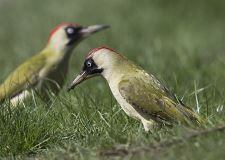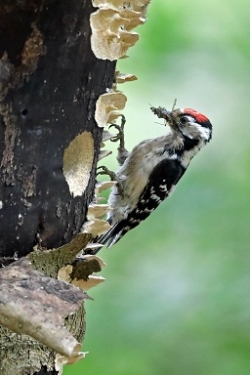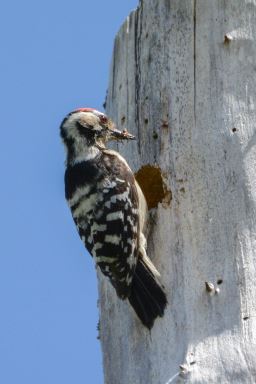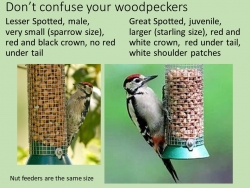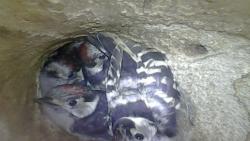2025 has been a record breeding season for Lesser Spotted Woodpeckers. Thanks to the efforts of all the LesserSpot Network volunteers, we have the details from 24 active nests – the highest total we have monitored since we started woodpecker network in 2015. In most years we hear of a few nests reported later in the year through the Bird Recorder network so the total could eventually be even higher. This is obviously a small fraction of the national total (last estimated as 2000 territories) but is still a good sample. Our previous highest total was 23 nests reported in 2019.
Like many other woodland breeding birds, the LSWs have been very successful this spring. None of the 24 nests were known to have failed and at least 64 young fledged from the 17 nests where we were able to check the nest contents with our video nest inspection cameras. The average of 3.8 young fledged per nest is the highest productivity we have seen in the last 11 years. It pretty much matches the levels of productivity reported when the LSW was still doing well in the UK.
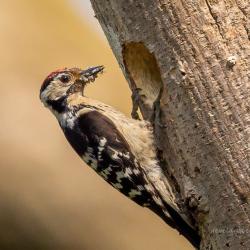 LSW bringing invertebrate food to its nest in the New Forest, photo Steve LaycockIt seems that there were high numbers of invertebrates available this spring so that many woodland bird species managed to raise good broods. There were reports in the media of high aphid numbers and we know that LSWs regularly feed their young on aphids, but other invertebrate groups could be involved too. We need some thoughts from the entomologists as to why 2025 has been such a good season. Was the prolonged settled weather with little rainfall in spring a factor?
LSW bringing invertebrate food to its nest in the New Forest, photo Steve LaycockIt seems that there were high numbers of invertebrates available this spring so that many woodland bird species managed to raise good broods. There were reports in the media of high aphid numbers and we know that LSWs regularly feed their young on aphids, but other invertebrate groups could be involved too. We need some thoughts from the entomologists as to why 2025 has been such a good season. Was the prolonged settled weather with little rainfall in spring a factor?
This is a quick update on what we have found this year. In the autumn once we have processed all the nest data and collected any extra records. we will produce our usual annual report.
Huge thanks to LesserSpotNet volunteers for finding and monitoring LSW nests in the New Forest, Wyre Forest, Devon, Somerset, Sussex, Kent, Suffolk and Norfolk and to all those who searched for nests but didn’t find one this year.
